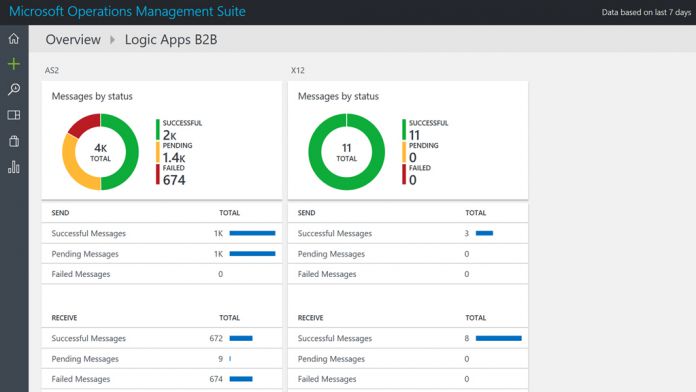Microsoft has announced the general availability of Enterprise Integration Pack within Azure Logic Apps. The feature seeks to simplify business-to-business communications in the cloud.
According to principal director Frank Weigel,“it enables you to more easily process business transactions reliably, track and troubleshoot B2B events and leverage additional out-of-the-box connectors.”
Enterprise Integration Pack Features
The Enterprise Integration Pack lets users manage and create agreements, maps, schemas, trading partners, certificates, and agreements. All of this is found in a simple and familiar interface.
As well as EDI abilities, customers can troubleshoot and track B2B events. This tracking goes straight to the Microsoft Operations Management Suite for easy access.
For now, Microsoft has confirmed support for AS2 and X12 formats. However, EDIFACT support will be coming in the next few weeks. A RESTful API is also available, letting you send tracking events from LogicApp executions and other applications.
This update coincides with the launch of several new connectors for Logic Apps. MQ Series and SAP ECC connectors are both in preview, and Microsoft is promising more over the next few months.
Pricing
Naturally, all these new features aren't free. Customers will have to pay for the Integration pack, and it comes at considerable expense. Here's Microsoft's current price list:
- “Integration account – $1,000 / month
- Enterprise Connection: $800 / Connection / Month
- Test Enterprise Connection: $400 / Connection / Month
- 90 day data retention: $0.30 / GB”
These are subject to change in March 2017, when GA pricing will become effective. For some customers, though, the pack has proved invaluable already. Microsoft is the following statement from Mission Linen Supply:
“Today, with our Azure Logic Apps solution, we can get suppliers onboarded within two weeks versus the two months or longer that the [Electronic Data Interchange] provider required. The faster we can integrate partners, the faster we can grow our business.”
That's a significant reduction in time, and will no doubt be attractive to a lot of companies. You can find more detail on the Azure blog, and further pricing information here.






